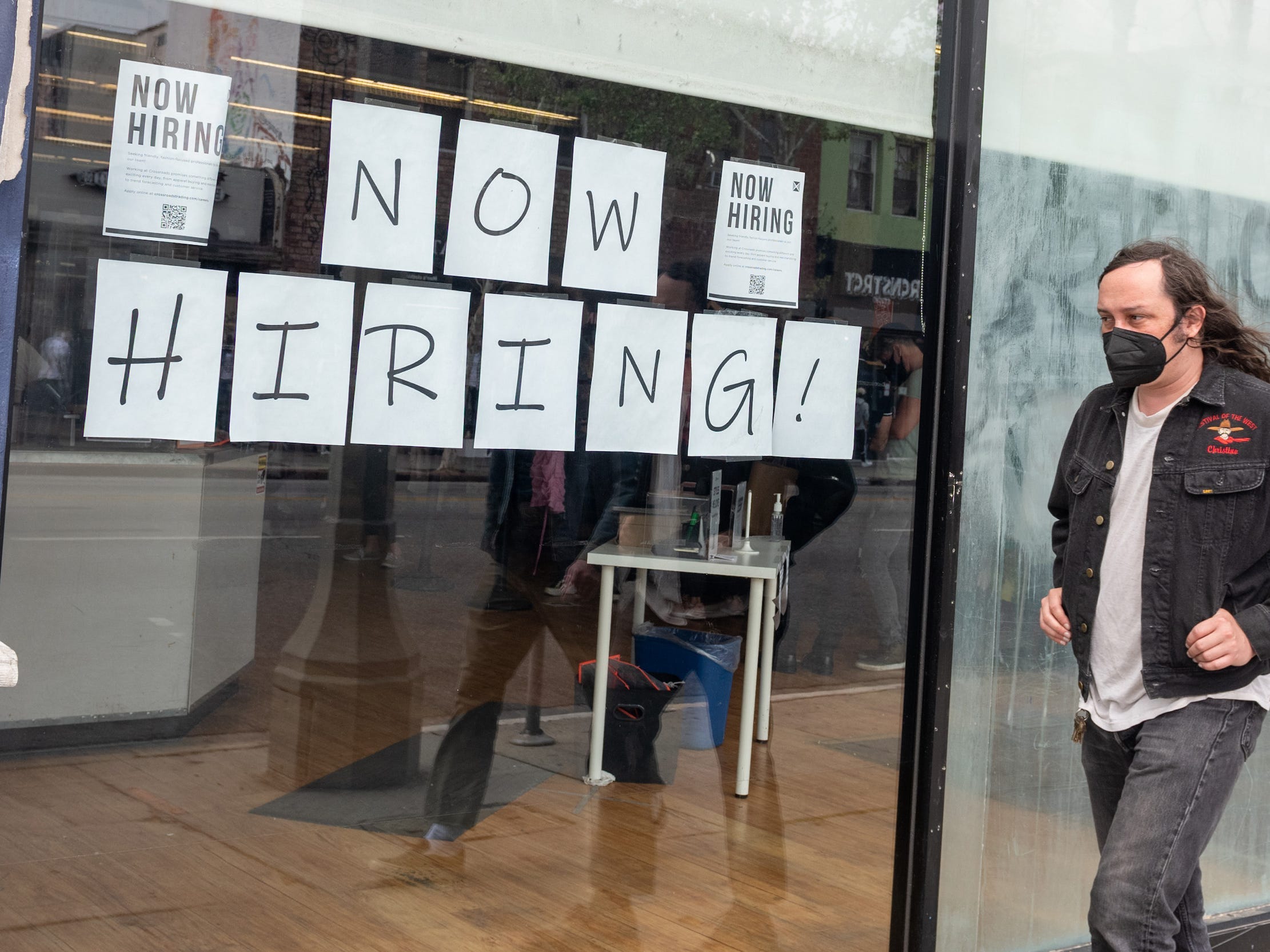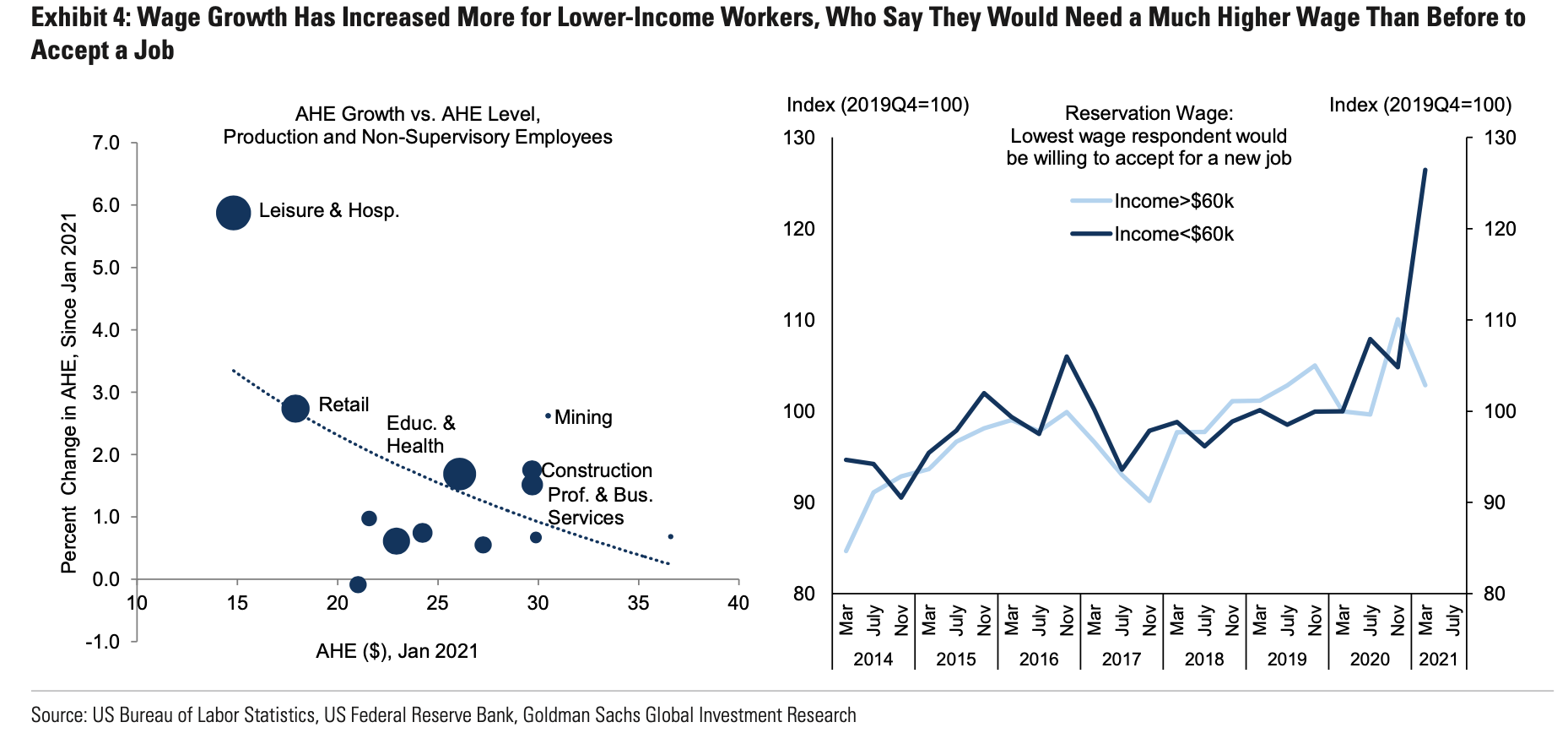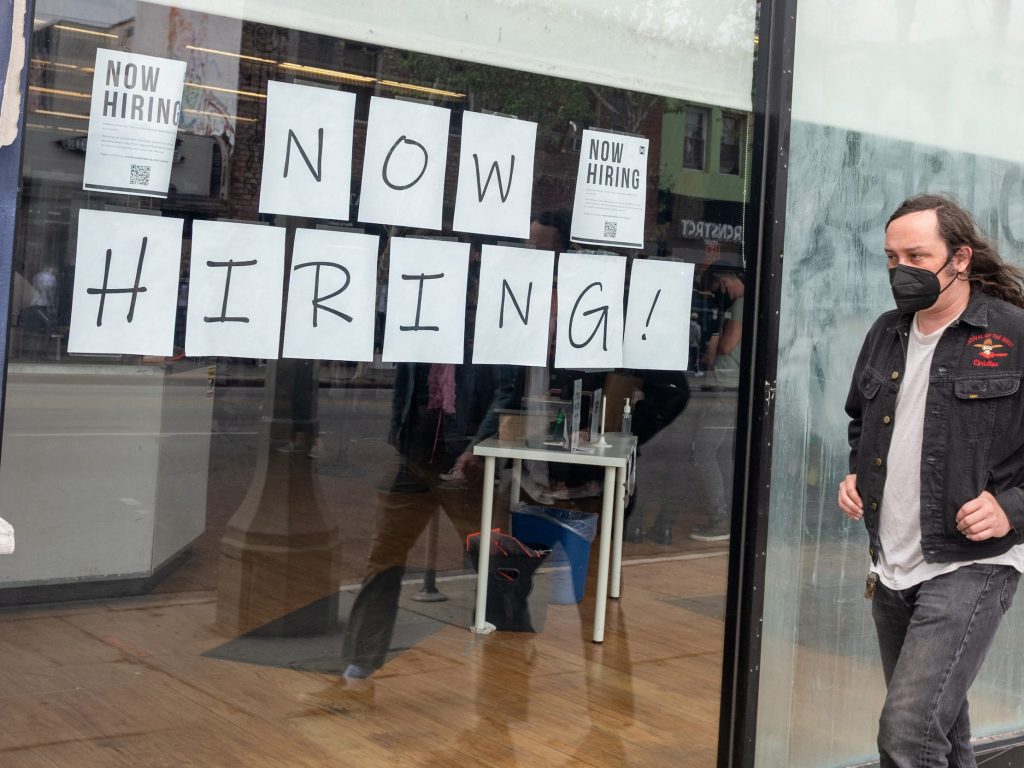
Alexi Rosenfeld/Getty Images
- A Goldman Sachs report found the labor shortage will cause wages to increase by 3% in the near term.
- This increase is likely due to too-generous unemployment benefits and fears of returning to work.
- Goldman predicts labor supply and wages will return to normal by the fall as the pandemic eases.
- See more stories on Insider's business page.
Last week's jobs report was much weaker than expected, adding only 266,000 jobs to the market when economists predicted 1 million. This was accompanied by stronger-than-expected wage growth in a labor market that is unexpectedly tight, which Goldman Sachs attributes to generous unemployment benefits and concerns returning to work.
The team led by Jan Hatzius, the bank's chief economist, predicted these factors will cause wages to increase in the short term but shouldn't be a long-term concern.
Goldman's note found that the spring labor shortage will push wage growth to 3.3% in the near term, before fading. "We expect these supply constraints to keep labor markets somewhat tight and push up wage growth in the near term, but to fade in the coming months and disappear in September, when most schools will have fully reopened, widespread vaccination will have dramatically reduced perceived health risk, and the $300 federal UI payments will have expired," the report said.

US Bureau of Labor Statistics, US Federal Reserve Bank, Goldman Sachs Global Investment Research
The labor shortage is putting pressure on wages as low-income workers have been saying their reservation wage, or the lowest wage they would accept for a new job, has increased by 21% since the fall, according to Goldman. Costco recently raised its minimum wage to $16 an hour, and Target and Amazon have raised their wages to $15 an hour.
Insider reported in April that while the Bureau of Labor Statistics found 9.7 million Americans were actively looking for work, businesses were also reporting significant labor shortages due to too-generous unemployment benefits and holding out for higher wages. Earlier today, Insider's Andy Kiersz and Ben Winck reported that unemployment benefits are acting as a shadow minimum wage, pressuring wages upward.
Kristen Broady, an economist at the Brookings Institution, told AP News that the economy has changed as some businesses have allowed their workers to continue working from home, at least for part of the week, likely hurting restaurants, coffee shops, and other businesses of that nature.
"When you think about those people," Broady said, "their work circumstances may never go back to pre-COVID."
Goldman Sachs also noted that it's hard to know when labor supply and wage growth will normalize, partly due to the conversation surrounding unemployment benefits. While President Joe Biden extended weekly $300 unemployment benefits through September 6, an increasing number of states announced they are ending the benefits in June to encourage people to get back to work.
However, some lawmakers, like Sen. Bernie Sanders of Vermont, are urging the Biden administration to keep the benefits flowing to workers in those states who need the extra aid.
"Workers who lack access to childcare, have lost employer-sponsored health insurance, and fear for their health and safety as we work to get every American vaccinated are entitled to these benefits," Sanders wrote in a letter. "They will be forced into poverty - either with poor jobs with unfair wages or no income at all - if you fail to provide these benefits."
